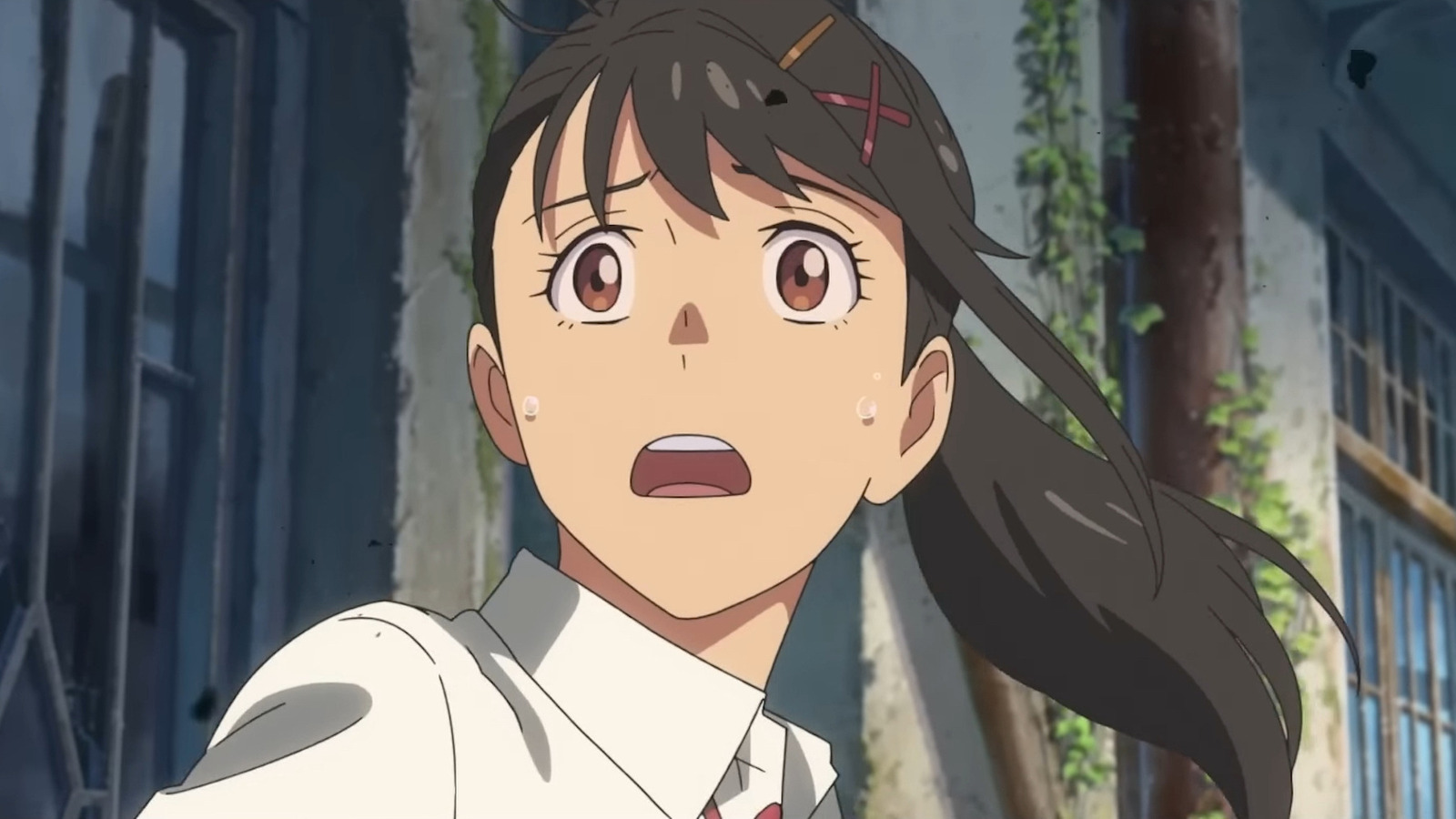[ad_1]

I want to start with the topic of natural disasters. A lot of your movies tend to involve natural disasters in their storyline. Is that something that just happens organically, or is that something that expressly, specifically interests you as a storyteller?
Initially as a filmmaker, I didn’t really look at disaster as a core thematic element of my stories. It was more actually about this romance over a very long distance in time, or a story about adolescence and growth. A huge change happened to me in 2011, when the Great Eastern Japan earthquake struck. And of course there was a lot of death and a lot of damage that I think to this day, Japan is still trying to recover from. And as an animation director, I think it really affected me and had me seek the meaning behind what it is I’m creating. Over the next 10 years from the earthquake, I think the idea of this natural disaster has always been on my mind as a thematic element in developing my films, leading up to the most recent film, “Suzume.”
“Suzume” is very much a film about mourning, or grief. It’s a story about one character’s mourning and a story about mourning on a larger scale. Do you feel as though the film is intended or effectually can help audiences deal with their own grief? Or, do you feel as though it was for you, perhaps, and your own emotional growth that the film is most powerful?
I think for me personally, I needed to make this film in some ways because after the disaster struck, there was a certain amount of kind of regret or lingering feelings that I had and that I don’t consider myself a direct victim of it, but I was still affected. In doing so, the three films I made over the next 10 years, “Your Name,” “Weathering With You” and “Suzume,” was perhaps myself trying to understand what an animation director can do in a time when it didn’t seem like a necessary good or service. So that resolution and understanding, I think, shaped in the form of these three films.
With “Suzume,” I think how that affected both direct and indirect victims of the earthquake, depending on how close you were to the epicenter, through this film, I really can’t speak to the effects and how it touched every person. Was it part of their own personal healing journeys? I don’t know. Maybe, maybe not. I think a lot of that depends on when they’ve seen the film, how old they were, the environment, how the disaster affected them personally. But in spite of all of that, I never set out to make “Suzume,” this film, of aiding people or telling people that, “Hey, this is how you come to terms with the disaster.”
For me, first and foremost, making an engaged and very fun experience to the moviegoing audience was my first and primary priority. But of course, I as a filmmaker will try to offer something of value and some added value that I can provide. And as a result, if people are able to come to terms with and find meaning in that disaster, then that’s great. But I wouldn’t go so far as to say that, “Hey, this is what I was intending to do.”
[ad_2]
Source link
![Suzume Director Makoto Shinkai Embraces The Idea Of Things Getting Lost In Translation [Exclusive Interview]](https://newsconscious.com/wp-content/uploads/https://media.npr.org/assets/img/2022/02/26/ap22056522780784_wide-b587d73541577a78d5cc0dd90c77e6f04dbf20fd.jpg?s=1400)
